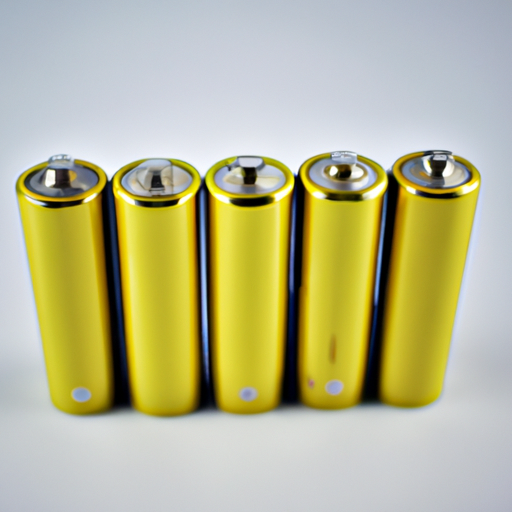What are the Advantages of Battery Capacitor Products?

I. Introduction
In an era where energy efficiency and sustainability are paramount, the demand for advanced energy storage solutions has surged. Among these innovations, battery capacitor products have emerged as a promising technology that combines the strengths of both batteries and capacitors. These hybrid systems are revolutionizing how we store and utilize energy across various applications, from electric vehicles to renewable energy systems. In this blog post, we will explore the advantages of battery capacitor products, shedding light on their significance in modern technology.
II. Understanding Battery Capacitor Technology
A. Explanation of Batteries and Capacitors
To appreciate the advantages of battery capacitor products, it is essential to understand the fundamental differences between batteries and capacitors.
1. **Differences between Batteries and Capacitors**:
- **Batteries** store energy chemically and release it through electrochemical reactions. They typically have high energy density, meaning they can store a large amount of energy relative to their size. However, they often have slower charge and discharge rates.
- **Capacitors**, on the other hand, store energy electrostatically and can release it almost instantaneously. They have high power density, allowing for rapid energy delivery, but they generally have lower energy density compared to batteries.
2. **How Battery Capacitors Combine the Two Technologies**:
Battery capacitor products, such as supercapacitors and hybrid capacitors, merge the benefits of both technologies. They provide a balance between high energy storage and rapid discharge capabilities, making them ideal for applications requiring quick bursts of power.
B. Types of Battery Capacitor Products
1. **Supercapacitors**: These devices offer high power density and rapid charge/discharge capabilities, making them suitable for applications like regenerative braking in electric vehicles.
2. **Hybrid Capacitors**: Combining features of batteries and supercapacitors, hybrid capacitors can store more energy than traditional capacitors while still delivering power quickly.
3. **Battery-Capacitor Systems**: These systems integrate batteries and capacitors to optimize performance, allowing for efficient energy management in various applications.
III. Key Advantages of Battery Capacitor Products
A. High Power Density
1. **Definition and Significance**: Power density refers to the amount of power a device can deliver relative to its size. Battery capacitor products boast high power density, enabling them to provide quick bursts of energy when needed.
2. **Applications in Electric Vehicles and Renewable Energy Systems**: In electric vehicles, high power density allows for rapid acceleration and efficient energy recovery during braking. In renewable energy systems, these products can quickly respond to fluctuations in energy supply and demand, enhancing grid stability.
B. Rapid Charge and Discharge Rates
1. **Comparison with Traditional Batteries**: Unlike traditional batteries, which can take hours to charge and discharge, battery capacitor products can achieve full charge in minutes. This rapid response time is crucial for applications requiring immediate power.
2. **Implications for Performance in Various Applications**: The ability to quickly charge and discharge makes battery capacitors ideal for applications such as power backup systems, where immediate energy delivery is essential.
C. Longevity and Cycle Life
1. **Durability Compared to Conventional Batteries**: Battery capacitor products typically have a longer cycle life than traditional batteries, often exceeding one million charge/discharge cycles. This durability reduces the need for frequent replacements.
2. **Economic Benefits of Longer Lifespan**: The extended lifespan of battery capacitors translates to lower maintenance costs and reduced waste, making them a more economical choice in the long run.
D. Wide Operating Temperature Range
1. **Performance in Extreme Conditions**: Battery capacitor products can operate effectively in a wide range of temperatures, from extreme cold to high heat. This versatility makes them suitable for various environments, including industrial settings and outdoor applications.
2. **Suitability for Diverse Environments and Applications**: Whether in automotive, aerospace, or renewable energy sectors, the ability to function in diverse conditions enhances the applicability of battery capacitor technology.
E. Environmental Benefits
1. **Reduced Reliance on Rare Materials**: Many battery capacitor products are designed to minimize the use of rare and toxic materials, contributing to more sustainable manufacturing practices.
2. **Potential for Recyclability and Sustainability**: As the industry moves towards greener technologies, battery capacitors can be designed for easier recycling, further reducing their environmental impact.
F. Versatility in Applications
1. **Use in Consumer Electronics, Automotive, and Industrial Sectors**: Battery capacitor products are increasingly being integrated into consumer electronics, electric vehicles, and industrial machinery, showcasing their versatility.
2. **Integration with Renewable Energy Sources**: These products can be used alongside solar panels and wind turbines to store excess energy, making them a vital component of sustainable energy systems.
IV. Case Studies and Real-World Applications
A. Electric Vehicles
1. **Role of Battery Capacitors in Enhancing Performance**: In electric vehicles, battery capacitors enhance performance by providing quick bursts of power for acceleration and regenerative braking.
2. **Examples of Manufacturers Utilizing This Technology**: Companies like Tesla and Toyota are incorporating battery capacitor technology into their electric vehicle designs, improving efficiency and performance.
B. Renewable Energy Storage
1. **Integration with Solar and Wind Energy Systems**: Battery capacitors are being used to store energy generated from renewable sources, allowing for better management of energy supply and demand.
2. **Case Studies of Successful Implementations**: Projects like the Hornsdale Power Reserve in Australia demonstrate the effectiveness of battery capacitor technology in stabilizing the grid and providing backup power.
C. Consumer Electronics
1. **Impact on Smartphones, Laptops, and Wearables**: Battery capacitors are being used in consumer electronics to enhance battery life and reduce charging times, leading to improved user experiences.
2. **Innovations Driven by Battery Capacitor Technology**: Companies are developing new devices that leverage the advantages of battery capacitors, leading to innovations in portable technology.
V. Challenges and Considerations
A. Cost Factors
1. **Initial Investment vs. Long-Term Savings**: While battery capacitor products may have a higher upfront cost, their longevity and efficiency can lead to significant long-term savings.
2. **Market Trends and Pricing Dynamics**: As technology advances and production scales up, the costs of battery capacitor products are expected to decrease, making them more accessible.
B. Technical Limitations
1. **Energy Density Compared to Traditional Batteries**: While battery capacitors excel in power density, they still lag behind traditional batteries in terms of energy density, which can limit their use in certain applications.
2. **Ongoing Research and Development Efforts**: Researchers are actively working to improve the energy density of battery capacitors, which could expand their applicability in the future.
VI. Future Trends and Innovations
A. Advancements in Battery Capacitor Technology
1. **Research Directions and Emerging Technologies**: Innovations in materials science and nanotechnology are paving the way for more efficient and powerful battery capacitor products.
2. **Potential Breakthroughs on the Horizon**: Future breakthroughs could lead to significant improvements in energy density and overall performance, further enhancing the viability of battery capacitors.
B. Market Growth and Adoption
1. **Predictions for the Future of Battery Capacitor Products**: The market for battery capacitor products is expected to grow significantly as industries seek more efficient energy storage solutions.
2. **Impact on Various Industries and Sectors**: As battery capacitor technology matures, its adoption across various sectors will likely lead to transformative changes in energy management and consumption.
VII. Conclusion
In summary, battery capacitor products offer a range of advantages that make them a compelling choice for modern energy storage solutions. Their high power density, rapid charge and discharge rates, longevity, and environmental benefits position them as key players in the future of energy technology. As we continue to explore and invest in this innovative technology, battery capacitors will undoubtedly play a crucial role in shaping a more sustainable and efficient energy landscape.
VIII. References
- Citing relevant studies, articles, and industry reports
- Additional resources for further reading on battery capacitor technology
By understanding the advantages of battery capacitor products, we can better appreciate their potential to revolutionize energy storage and management across various applications. As we move towards a more sustainable future, investing in and exploring these technologies will be essential for achieving our energy goals.
What are the Advantages of Battery Capacitor Products?

I. Introduction
In an era where energy efficiency and sustainability are paramount, the demand for advanced energy storage solutions has surged. Among these innovations, battery capacitor products have emerged as a promising technology that combines the strengths of both batteries and capacitors. These hybrid systems are revolutionizing how we store and utilize energy across various applications, from electric vehicles to renewable energy systems. In this blog post, we will explore the advantages of battery capacitor products, shedding light on their significance in modern technology.
II. Understanding Battery Capacitor Technology
A. Explanation of Batteries and Capacitors
To appreciate the advantages of battery capacitor products, it is essential to understand the fundamental differences between batteries and capacitors.
1. **Differences between Batteries and Capacitors**:
- **Batteries** store energy chemically and release it through electrochemical reactions. They typically have high energy density, meaning they can store a large amount of energy relative to their size. However, they often have slower charge and discharge rates.
- **Capacitors**, on the other hand, store energy electrostatically and can release it almost instantaneously. They have high power density, allowing for rapid energy delivery, but they generally have lower energy density compared to batteries.
2. **How Battery Capacitors Combine the Two Technologies**:
Battery capacitor products, such as supercapacitors and hybrid capacitors, merge the benefits of both technologies. They provide a balance between high energy storage and rapid discharge capabilities, making them ideal for applications requiring quick bursts of power.
B. Types of Battery Capacitor Products
1. **Supercapacitors**: These devices offer high power density and rapid charge/discharge capabilities, making them suitable for applications like regenerative braking in electric vehicles.
2. **Hybrid Capacitors**: Combining features of batteries and supercapacitors, hybrid capacitors can store more energy than traditional capacitors while still delivering power quickly.
3. **Battery-Capacitor Systems**: These systems integrate batteries and capacitors to optimize performance, allowing for efficient energy management in various applications.
III. Key Advantages of Battery Capacitor Products
A. High Power Density
1. **Definition and Significance**: Power density refers to the amount of power a device can deliver relative to its size. Battery capacitor products boast high power density, enabling them to provide quick bursts of energy when needed.
2. **Applications in Electric Vehicles and Renewable Energy Systems**: In electric vehicles, high power density allows for rapid acceleration and efficient energy recovery during braking. In renewable energy systems, these products can quickly respond to fluctuations in energy supply and demand, enhancing grid stability.
B. Rapid Charge and Discharge Rates
1. **Comparison with Traditional Batteries**: Unlike traditional batteries, which can take hours to charge and discharge, battery capacitor products can achieve full charge in minutes. This rapid response time is crucial for applications requiring immediate power.
2. **Implications for Performance in Various Applications**: The ability to quickly charge and discharge makes battery capacitors ideal for applications such as power backup systems, where immediate energy delivery is essential.
C. Longevity and Cycle Life
1. **Durability Compared to Conventional Batteries**: Battery capacitor products typically have a longer cycle life than traditional batteries, often exceeding one million charge/discharge cycles. This durability reduces the need for frequent replacements.
2. **Economic Benefits of Longer Lifespan**: The extended lifespan of battery capacitors translates to lower maintenance costs and reduced waste, making them a more economical choice in the long run.
D. Wide Operating Temperature Range
1. **Performance in Extreme Conditions**: Battery capacitor products can operate effectively in a wide range of temperatures, from extreme cold to high heat. This versatility makes them suitable for various environments, including industrial settings and outdoor applications.
2. **Suitability for Diverse Environments and Applications**: Whether in automotive, aerospace, or renewable energy sectors, the ability to function in diverse conditions enhances the applicability of battery capacitor technology.
E. Environmental Benefits
1. **Reduced Reliance on Rare Materials**: Many battery capacitor products are designed to minimize the use of rare and toxic materials, contributing to more sustainable manufacturing practices.
2. **Potential for Recyclability and Sustainability**: As the industry moves towards greener technologies, battery capacitors can be designed for easier recycling, further reducing their environmental impact.
F. Versatility in Applications
1. **Use in Consumer Electronics, Automotive, and Industrial Sectors**: Battery capacitor products are increasingly being integrated into consumer electronics, electric vehicles, and industrial machinery, showcasing their versatility.
2. **Integration with Renewable Energy Sources**: These products can be used alongside solar panels and wind turbines to store excess energy, making them a vital component of sustainable energy systems.
IV. Case Studies and Real-World Applications
A. Electric Vehicles
1. **Role of Battery Capacitors in Enhancing Performance**: In electric vehicles, battery capacitors enhance performance by providing quick bursts of power for acceleration and regenerative braking.
2. **Examples of Manufacturers Utilizing This Technology**: Companies like Tesla and Toyota are incorporating battery capacitor technology into their electric vehicle designs, improving efficiency and performance.
B. Renewable Energy Storage
1. **Integration with Solar and Wind Energy Systems**: Battery capacitors are being used to store energy generated from renewable sources, allowing for better management of energy supply and demand.
2. **Case Studies of Successful Implementations**: Projects like the Hornsdale Power Reserve in Australia demonstrate the effectiveness of battery capacitor technology in stabilizing the grid and providing backup power.
C. Consumer Electronics
1. **Impact on Smartphones, Laptops, and Wearables**: Battery capacitors are being used in consumer electronics to enhance battery life and reduce charging times, leading to improved user experiences.
2. **Innovations Driven by Battery Capacitor Technology**: Companies are developing new devices that leverage the advantages of battery capacitors, leading to innovations in portable technology.
V. Challenges and Considerations
A. Cost Factors
1. **Initial Investment vs. Long-Term Savings**: While battery capacitor products may have a higher upfront cost, their longevity and efficiency can lead to significant long-term savings.
2. **Market Trends and Pricing Dynamics**: As technology advances and production scales up, the costs of battery capacitor products are expected to decrease, making them more accessible.
B. Technical Limitations
1. **Energy Density Compared to Traditional Batteries**: While battery capacitors excel in power density, they still lag behind traditional batteries in terms of energy density, which can limit their use in certain applications.
2. **Ongoing Research and Development Efforts**: Researchers are actively working to improve the energy density of battery capacitors, which could expand their applicability in the future.
VI. Future Trends and Innovations
A. Advancements in Battery Capacitor Technology
1. **Research Directions and Emerging Technologies**: Innovations in materials science and nanotechnology are paving the way for more efficient and powerful battery capacitor products.
2. **Potential Breakthroughs on the Horizon**: Future breakthroughs could lead to significant improvements in energy density and overall performance, further enhancing the viability of battery capacitors.
B. Market Growth and Adoption
1. **Predictions for the Future of Battery Capacitor Products**: The market for battery capacitor products is expected to grow significantly as industries seek more efficient energy storage solutions.
2. **Impact on Various Industries and Sectors**: As battery capacitor technology matures, its adoption across various sectors will likely lead to transformative changes in energy management and consumption.
VII. Conclusion
In summary, battery capacitor products offer a range of advantages that make them a compelling choice for modern energy storage solutions. Their high power density, rapid charge and discharge rates, longevity, and environmental benefits position them as key players in the future of energy technology. As we continue to explore and invest in this innovative technology, battery capacitors will undoubtedly play a crucial role in shaping a more sustainable and efficient energy landscape.
VIII. References
- Citing relevant studies, articles, and industry reports
- Additional resources for further reading on battery capacitor technology
By understanding the advantages of battery capacitor products, we can better appreciate their potential to revolutionize energy storage and management across various applications. As we move towards a more sustainable future, investing in and exploring these technologies will be essential for achieving our energy goals.













